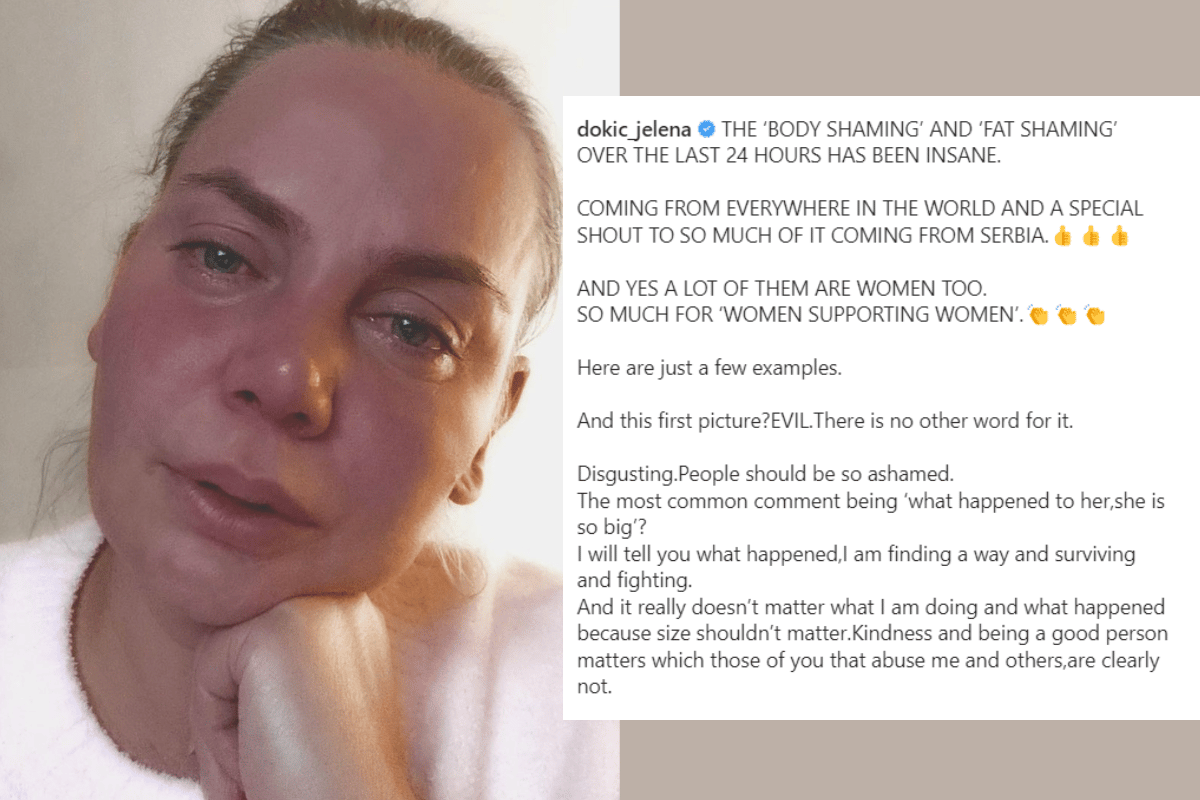
Jelena Dokic has been hammered by relentless trolls while doing her job this year at the Australian Open. It’s what women in bigger bodies, who work in the public eye, have been enduring for decades. And it’s exactly the kind of thing that fuels and reinforces disordered eating, and body dysmorphia in many of us.
Watch: 57 per cent of girls compare themselves to other people on social media. Post continues after video.
It’s appalling that Dokic, a survivor of domestic abuse, and fierce advocate for others like her, is being subjected to threats on her life based on her physical appearance. But beyond the horror she has been forced to endure, what kind of message does it leave for young women and girls watching her masterful commentary during this Australian Open?
That it’s not enough to be a woman at the top of her field. You also have to be thin.
Fortunately, we’ve come a long way when it comes to what we will and won’t tolerate in the public conversation about women’s bodies. And the outpouring of public support for Dokic in the wake of these horrific attacks is incredibly heartening.
But, she has still had to endure the abuse. And our young people have had to watch as a powerful and talented woman was publicly, viciously, torn apart for the way she looks. The harm this can do is immeasurable. And for those of us watching who are living in bigger bodies, and those recovering from eating disorders, it’s a stark reminder of what we’re up against. Of what we might also face if we climb too high, become too visible and succeed in our chosen fields while in a bigger body.




























































































